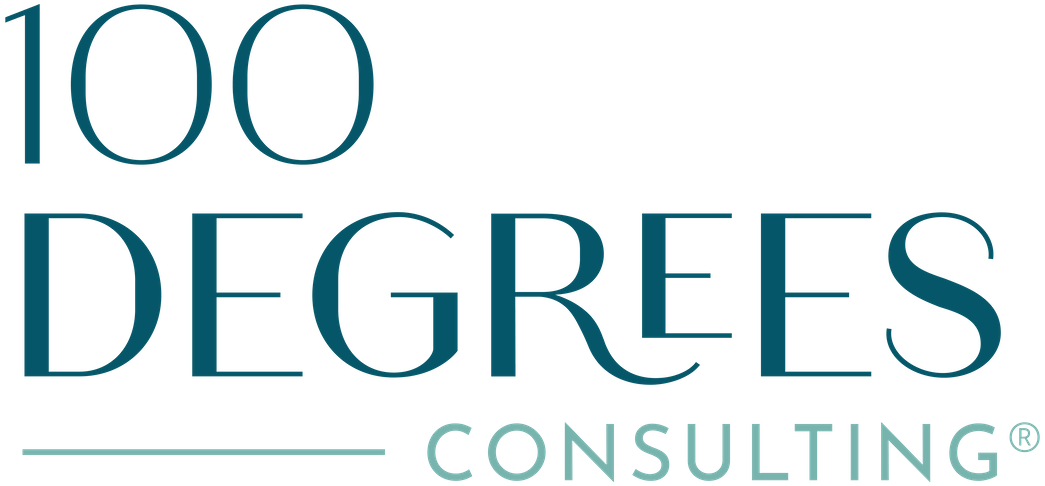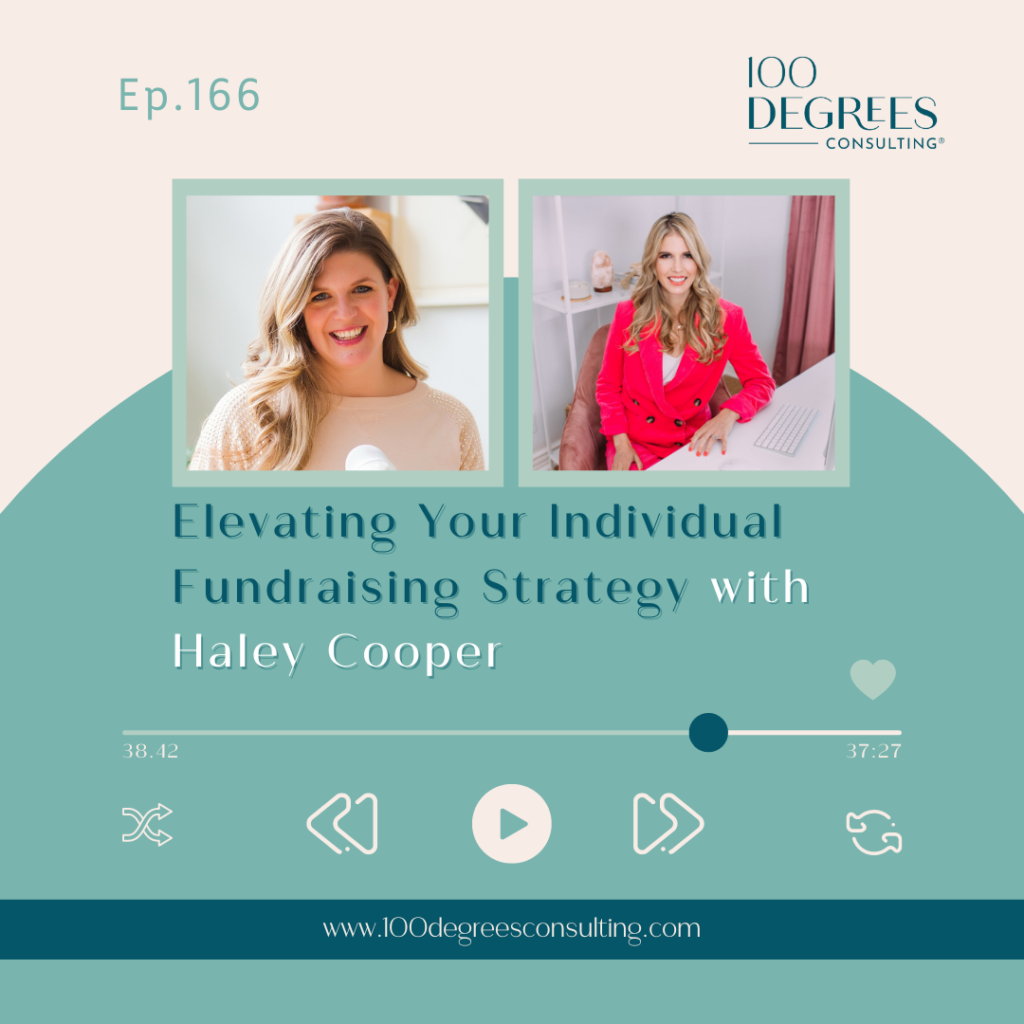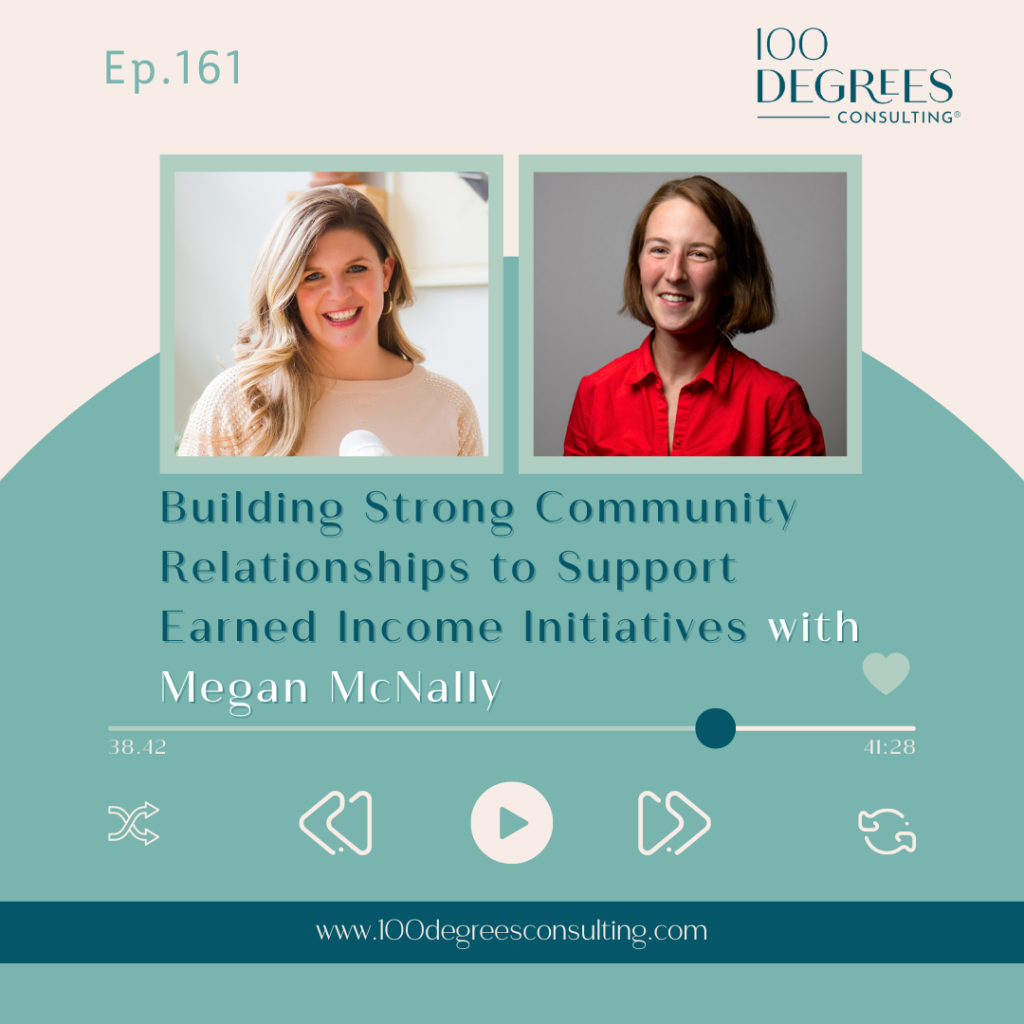E92 – Stop Living on the Edge with Your Money
[00:00:00] Welcome to the 100 degrees of Entrepreneurship podcast, the show for purpose driven entrepreneurs who wanna get inspired to step outside of your comfort zone, expand it to your purpose, and grow your business in a big way. I’m your host Stephanie Kowski, a globe TRO cfo, whose mission is to empower leaders to better understand their numbers, to grow their impact and their income.
Let’s dive in.
Hey everybody. Today we are talking. How to stop living on the edge with your money. In other words, how to stop being a chaotic hot mess when it comes to the finances for your business. And today I actually have seven different tips for you. So I know that a lot of our episodes are not this structured.
We’re just kind of chatting like friends. But today I actually. Seven different tips for you to give [00:01:00] you some clarity and confidence in yourself and clarity in your numbers so that you really feel like you aren’t a hot mess anymore. So let’s dive right in. I’ve got seven tips. Hopefully you can write ’em down.
If you can’t. You can always get whatever you need from the show notes that 100 degrees consulting.com. But let’s dive right in. So tip number one, how to stop living on the edge with your money is you gotta have a plan. And I don’t just mean like, Yeah, I’m gonna make a million bucks this year. No. I want you to have a plan for exactly how much money you wanna have at the end of the year, how much money you wanna have on an ongoing basis, like what’s your cash reserve, right?
Maybe you have a plan around retirement contributions or a plan on how many people you wanna hire. I want some details behind this plan, and so, Maybe it’s number of clients, which is also obviously attached to revenue. Maybe it’s number of team members. [00:02:00] Maybe it’s different personal financial goals or amount of cash in the bank.
We need a plan to help us stay on track and laser focus despite the economic climate. Right. We are starting to go into 2023 as this episode is being. Released and who knows, who knows what this next year is gonna hold, right? So if we’ve got a plan and we have a really clear idea of our goals and priorities, that’s gonna help us stay on track no matter what the outside world is doing.
And if we have a plan. We’re able to share this plan with our team, with our business partners, with our, um, you know, life partners, whoever it might be. But we’ve got a plan. We’re able to share it, we’re able to articulate it clearly, and so we’re all the more likely to actually achieve that financial plan, whatever it is, if we actually have one.
Right. So, That is my first tip to stop living on the edge with your money. Have a plan around it. So my [00:03:00] next tip on how to stop living on the edge is to actually know your numbers. And so right now you may be feeling like you don’t have a clear sense of your money. You don’t really know how healthy your business is, and things don’t feel great maybe, but you don’t really know what to do to make them feel not great.
You can’t pinpoint what to change, right? I’ve got lots and lots of education around this, but really calculating and reviewing some key metrics that are relevant for your business is super, super important to do on a monthly basis. So understanding your revenue, diversity, understanding your burn rate, understanding your profit margins.
Those types of numbers are really gonna help you figure out, okay, can my business be around for the long haul? Like, is my money in a healthy position and you know, am I positioned the right way to be able to withstand whatever, you know, whatever changes come down the pike, right? So [00:04:00] we want to know our numbers, and one great place to start is looking at our profit playbook.
So you may already have this, but if you don’t, head over to 100 degrees consulting.com/profit. And there’s a template in there, uh, for forecasting and calculating some of these metrics that I’m talking about. So some next steps for you are to really figure out what are the metrics that are most useful to your business?
What do you wanna dig deeper into? Maybe it’s revenue, maybe it’s expenses, maybe it’s your debt, maybe it’s cash, whatever it is. Um, and then calculate those metrics every single month. So knowing your numbers is a fantastic way to. Stop living on the edge with your money. You’re not living on the edge cuz you know exactly how much money you have in the bank and you feel good about it.
Right? Okay. Number three, to stop living on the edge with your finances is to create a cash reserve. So maybe you’re living more or less pay paycheck to paycheck. Maybe the money is flying out the door as fast as it’s coming in and maybe [00:05:00] you’ve had to make. Major scary decisions in your business, like not paying people on time or cutting expenses or, you know, really having to hustle to bring more revenue in.
And you don’t wanna do that. Well, the solution is building a cash reserve, so making sure that you have a nice chunk of change sitting in your bank account, ideally like enough to cover three to six months of expenses. And then, you know, just letting it sit there, right? Not spending, not spend. And so the first thing I want you to do is understand how much money you have in the bank right now, how many months of cash on hand that represents.
So that’s our first step. Like how much do we have right now? And then what’s our goal? And so maybe you have like, you know, let’s say if you have 20 grand in the bank and your average monthly expenses are about 10 grand, okay? You’ve got two months of cash on hand. You may think. Oh, $20,000 sounds like a lot of money, but when you do that calculation, you’re like, Oh, [00:06:00] actually only two months of expenses.
That’s not that. So then you think about, okay, how can we get to three months of expenses or four months of expenses, right? And then start putting money little by little into that savings account to build up that cash reserve. Um, so having a bunch of money in the bank is super helpful to not be a hot mess with your money, right?
You’re gonna feel so much more confident when you know you have got that cash buffer behind. Okay. Number four in how to stop living on the edge with your money is to handle your bookkeeping. So I can’t even count on one hand or two hands or 10 hands how many times potential clients have come to us and said like, My numbers are not up to date.
I’m a few months behind in my bookkeeping or like my books are really, really messy and I’m pretty sure I’ve screwed things up in there and nobody’s looked at it for a year. Or maybe you’re like, Oh, my aunt’s friend’s [00:07:00] cousin has been doing my bookkeeping, and she’s like, So nice. But you know, she’s a volunteer and so I’m not really sure like when the last time she did it is, or maybe you just have everything in Excel, but Oh, you kind of forgot to update it the last four months.
Right? So bookkeeping is a hot mess. , that is no way to feel on top of your numbers, my friend. So we need a solution. You need a bookkeeper, whether it’s, you know, somebody that you pay a couple hundred dollars a month to manage your books or whether it’s you, you know, getting in there and just handling QuickBooks yourself.
Like put on our big girl pants, Put on our big person pants. Go in there and get it done. So whatever that solution looks like for you, you wanna make sure that it is done on a timely basis. I feel like this is the most important thing on a timely basis. Please don’t let your bookkeeping get two years behind.
That is not gonna feel good to you. That is living on the edge because you don’t have the information that you need to make decisions, right? So stop living [00:08:00] on the edge and just get your bookkeeping up to date. . So that’s what we wanna do. We wanna make sure we have a professional, or at least somebody that knows what they’re doing.
And that person could be you doing your bookkeeping. Or like I said, hire somebody for a couple hundred bucks a month and you wanna do this on a monthly basis, um, using a software that is able to pull reports for you. So that was number four, to handle your bookkeeping. Okay. Number five, to stop living on the edge with your numbers is like understand your revenue.
So what I see happen often is a large portion of your revenue is coming from one source or one client, or one revenue stream, or one time period of the year. Maybe like. You’re a product business, and all of your revenue comes in q4, right? So our revenue is not diverse. We’re putting all of our eggs in one basket, and that is inherently risky.
So that is living on the edge, my friends, because what if something [00:09:00] happened to that particular revenue stream? Buy, buy business, right? We do not want that to happen. I don’t want that to happen to you. We need to reinforce our revenue. This is number five. So how do we do that? So first we really need to understand our revenue diversity.
This is a metric that you can calculate to understand what percentage of my revenue is coming from each source. And so if you do this math and you’re like, Okay, 80% of my revenue is coming from one. All right, well, how can we shift things around? How can we diversify this revenue a little bit more? Right?
If you find some risk areas in there, how can we diversify a little bit more? So that’s all you have to do is really think about like, is my revenue concentrated? in a particular time period, or from a particular source or one particular client, whatever it is, and see how you can spread that out, right? So living on the edge is putting all of our eggs in one basket, and we absolutely don’t wanna do [00:10:00] that.
So let’s not do that with our business either.
You hear me talk all the time about how important it is to know your numbers as a business owner, but you may be thinking, Well, how in the world do I do that? Where do I even begin? So I have a free resource for you. The Profit Playbook is an amazing template that. You spend about 15 minutes getting it all set up and you can literally see into the future of your business.
Revenue expenses, cash flow, just like a crystal ball. It is a huge resource that will absolutely help you create a roadmap to reach your goals in your business. It is for free over at 100 degrees consulting.com/profit.
Okay, number six, and how to stop living on the edge with your finances, with your money is to edit your expenses. So what I see happen often is that you, [00:11:00] you may have no idea how much money you’re spending every month, and I know that sounds crazy, but I see it all the time. Like, what are your average monthly expenses?
Oh, I have absolutely no clue. And that usually comes in tandem with not having a lot of money in the bank. Is not knowing how much money you’re spending, or maybe your expenses are, you know, growing faster than your revenue. You’re spending that money faster than it’s coming in, right? So our expenses are the issue.
Now I’m never, I have never been one to tell you to cut expenses and shave things down and operate, um, you know, on this sort of razor thin expense budget. Absolutely not. I’m all about, you know, making those million dollar decisions as Rachel Rogers would say, and spending money when we need to spend money.
I am all about it. If your spending is outpacing your revenue growth, like we have a problem and that’s living on the edge with your money because that is only going to end [00:12:00] in chaos and disaster. Not to be morbid, but like it’s kind of true. So what we wanna do is, first of all, you need to understand how much money you’re spending in your business.
What does it cost to run your business on a monthly basis. So look at the past six to 12 months and take an average of how much money you’re spending per month, and there’s your. And while you’re at it, while you’re looking at those numbers, dig deep into the line items to see. What am I spending money on actually?
Do I need to be spending all of this money? Is this all generating a return on investment or roi? Is this all contributing towards my bigger purpose, my mission, um, the business that I wanna lead? And sometimes you’re gonna be like, Yeah, it totally is. And other times you’re gonna say, You know what? It really is not, you know, maybe you’ve been going to this conference for the past couple years.
It’s an industry conference and you feel like you should go, but, and it’s costing you a few thousand [00:13:00] dollars when all is said and done, but in reality, it’s not leading to any additional business or you know, you’re really not getting all that much out of it. Well, you need to go to that next year.
Probably not. Right? So you can cut that or like we all know. The software subscription that we did, the free trial and we gave them our credit card and then we forgot to cancel. They’ve been charging us for the last eight months. Get rid of that stuff. Right? So this is a great time to really dig deep into your expenses and cut what you don’t need.
Okay. And we are here at number seven of how to stop living on the Edge with your finances. Really think about review relationships. That is number seven. Review relationships. So you may not have a clear picture of any commitments that you have with vendors, any service providers, um, any subcontract. And that, you know, you, you sign these long contracts when you initially start working with somebody, um, on either side.
If you’re the, you know, if you are the, the [00:14:00] vendor or if you are the vendee. , is that the right term? Or if you’re the customer, that’s what I should say. Um, We signed these long contracts full of legal ease. And what happens is that often we don’t know what those contracts say. And I myself have been in this position, and I know that probably a lot of you listening, were in this position when the pandemic hit and when March 13th, 2020 happened when literally the entire world shut down.
We were all forced to look at the contract that we had signed. And either, you know, meet our end of the, you know, of the obligations per the contract, or try to negotiate with vendors or with, you know, with customers, whatever it is. So let’s get proactive. Let’s get on top of that. Let’s not live on the edge and just like, Throw caution to the wind and sign our, you know, sign our life away on all of these contracts.
Let’s really understand what they mean, right? Let’s understand our contract end dates. Let’s understand the fee structure. Let’s understand the [00:15:00] cancellation policies, and let’s understand whatever financial commitments we already have, right? Like you may. Um, hired an agency to do some creative work for you, and maybe the project is gonna cost, you know, it’s gonna cost $10,000, um, but maybe you’re not happy with the work or maybe you’ve changed your mind and you’ve paid ’em $2,000 and you, you wanna get out of it.
Well, there may be language in that contract that. States that you can’t get out of it and you still owe them the balance. So really understand what those obligations are now so that you’re not caught off guard in a position that is going to like set your business over the edge when it comes to your money.
Right? So review your relationships. So that’s, that’s it my friends. That’s seven things that you can do to stop living on the edge with your finances. And when I. I really mean like let’s be a little bit more proactive instead of reactive and living on that edge and just hoping for the best [00:16:00] and hoping that one strong wind is not gonna come and blow you over the side, right?
We don’t want that to happen. So just to recap the seven things that we talked about to help you stop living on the edge with your business, with your money, number one. Have a plan. Know what your goals are, know what your priorities are so that you can stay on track and laser focus towards them. Number two, you need to know what your numbers today to make smart decisions for tomorrow.
So knowing your numbers, knowing your metrics, I have a tool for that will share what that is, and you can find that on our website as well. Number three, building a cash reserve to weather the storm. You’ll never feel on the edge again, if you’ve got money in the. I promise you that if you have a strong cash cushion in the bank, you’re not ever gonna feel like you’re living on the.
Number four, get up to date on your bookkeeping so you have good information, you have timely information to help you make decisions. [00:17:00] Stop putting off QuickBooks. Stop putting off hiring a bookkeeper. Stop trying to do it yourself if you’re just causing a hot mess in there and hire a professional or get it done and get a up to date.
This is a business expense. This is a business activity that you as a business. Have to handle. I feel like I’m dishing out some tough love today, my friends . Okay, so number four was getting up to date on your book. Number five, diversify your revenue so you’re not relying on any one or two sources to pay your bills and pay your team, diversify your revenue.
Do not put all of your eggs in one basket. That is the definition of living on the edge. Number six, manage your x. Expenses today so that you have flexibility tomorrow. Get rid of all of those unused expenses that are not serving you or your business in any way, shape or form. Clean things up, right? I’m not telling you to cut or scrimp or save.
I’m telling you to clean things up. And number seven, evaluate your relationships and your contracts with your vendors, with your [00:18:00] partners, um, with your subcontractors so that you know exactly what you owe, what you have committed to, and you can manage any risk accordingly. All right, my friends. That was a lot.
That was a lot. This was a, a pretty packed episode, but I strongly encourage you to go back and listen to this again when you have a pen and paper so that you can write all of these seven things down. Um, this is super important because it often feels like when we’re not in our zone of genius, when we’re.
in our area of expertise, which for many of you might be around money and around finances, it can often feel like we are living on the edge. I know if you said anything to me like about my WordPress website, oh, I’m living on the edge all the way over there and one lead out, one strong gust is pushing me over cuz I don’t know anything about that.
Um, thankfully I have a team that. But [00:19:00] I am really just not in my area of expertise over there, and so I do feel like anything could break it. And you might feel that way about your numbers as well. You might feel like, you know, one chargeback or. One client not paying you, um, or one expense, getting pushed through too soon is gonna break you.
And I don’t want you to feel like that. I don’t want you to feel one gust of wind away from falling off a cliff, right? So the seven tips that I shared today are really gonna help you be more proactive and really feel that confidence that all right, you are now. Five feet off the edge of the cliff. Okay, Now you’re 10 feet off the edge of the cliff.
Okay? Now you have three months of cash in the bank, okay? Now you’re 20 feet off that cliff, right? We’re gonna get you so far off that cliff. You can’t even see the bottom anymore. So that’s my goal, my friends, As always, you know where to find me. I hope this was useful. I hope this resonates with you. Um, please let me know.
You have any questions or wanna talk more, you [00:20:00] know where to find me on over on Instagram at Stephanie dot s k y, and I will catch you next time. Thanks for listening to the 100 degrees of Entrepreneurship podcast. To access our show notes and bonus content, visit 100 degrees consulting.com/podcast. Make sure to snap a screenshot on your phone of this episode and tag me on Instagram at stephanie dot s k r y and I’ll be sure to.
Thanks for being here, friends, and I’ll see you next time.



















